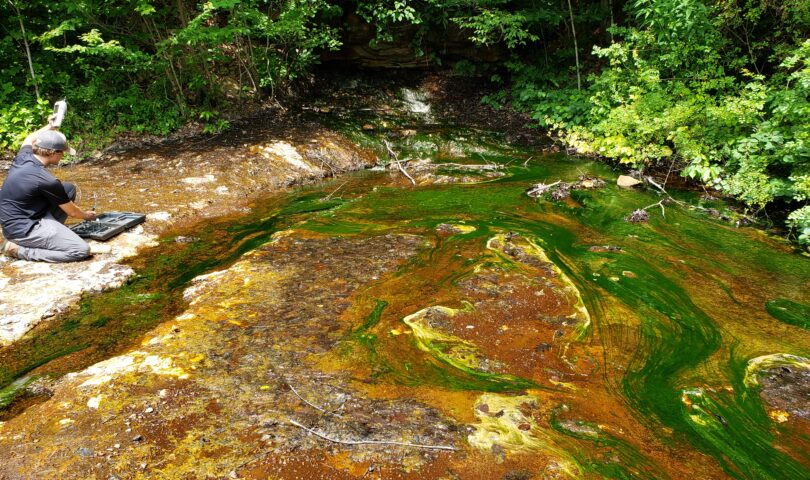MORGANTOWN – The Senate version of the bill to enable beneficial extraction of rare earth elements and critical mineral from mine runoff took its first step on Monday, winning approval of the Natural Resources Committee.
SB 458 as introduced was identical to HB 4003, approved by House Energy last week and sent to Judiciary, which had the bill on its Monday agenda (the House doesn’t archive its meetings as the Senate does and The Dominion Post was unable to attend).
House Energy expanded the original to say that “all chemical compounds, elements, and other potentially toxic materials which are found within the waters of this state and which are derived from the treatment of mine drainage, and which have economic value, may be used, sold, or transferred,” either by the Department of Environmental Protection or its designee, or by any private party. The DEP is restricted to deposit its income into the Special Reclamation Water Trust Fund or the Acid Mine Drainage Set-Aside Fund.
Senate Natural Resources took up a committee substitute, and while committee counsel didn’t explain the differences between the substitute and the original, discussion indicated it matches the revised House version.
DEP General Counsel Jason Wandling – who also testified in the House – said the bill would apply to mines abandoned before the 1977 U.S. Surface Mining Control and Reclamation Act took effect, and for any mines where the bonds were forfeited after 1977.
Wandling told the Senate committee the reason DEP is interested in the bills and the process is because it is responsible for treating the runoff from those mines and WVU’s has developed a process for extracting the elements and minerals and has a facility in operation near Mount Storm.
“We would not be doing that at all if we weren’t treating the water,” he said.
While prior discussions of this issue have indicated the products are valuable, Wandling said that right now return on investment is dwarfed by the cost of operating the site.
The question arose as to who owns the minerals. The landowners are generally not the same as the mining company that abandoned the mine or forfeited the bond. Wandling said that if landowners want to recoup money they should contribute to the treatment cost.
The House bill says “these materials found within the waters of the state are part of the water and can only be separated from the water with expensive and continuing investments of resources which may last for decades.”
Phil Montague, chief engineer for the Cole & Crane Real Estate Trust, argued for the landowners. They are concerned, he said, about taking an asset and giving to third party without compensation or acknowledging ownership of the asset.
Committee counsel suggested, along the same lines as Wandling, that landowners wanting a share of the proceeds from the mine water may also be exposed to liability for the cleanup.
Sen. Randy Smith, R-Tucker and lead sponsor of the Senate bill, said the bill is an attempt to get ahead of the curve as interest develops in extract the rare earth elements and critical minerals. The bill isn’t perfect and will no doubt need more work in future years as they learn more.
The bill passed in a voice vote, with no audible votes against, and goes next to Judiciary.
Tweet David Beard @dbeardtdp Email dbeard@dominionpost.com




